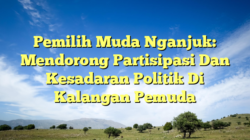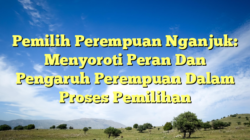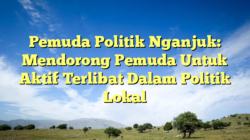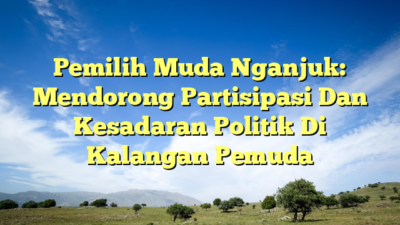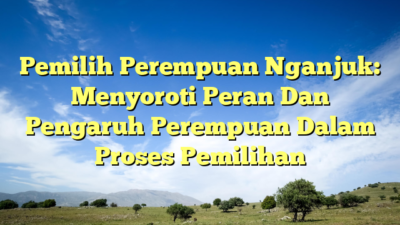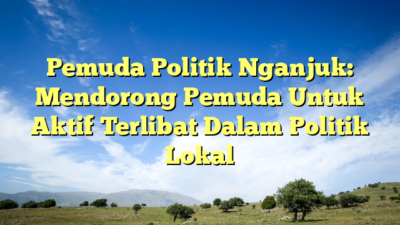Indonesia is blessed with abundant natural resources, including breathtaking sceneries that leave tourists in awe. From stunning beaches to lush forests and towering mountains, the country has it all. As a nature enthusiast, I can’t help but appreciate the beauty that Indonesia has to offer.
Nature’s Finest: Kekayaan Alam Indonesia
One of the most striking images that caught my attention is a photo of Indonesia’s natural beauty at its finest displayed on Gemanusa’s website. The picture showcases the lush greenery of Indonesia’s tropical rainforests that provide a perfect habitat for a diverse range of flora and fauna. In addition to its rainforests, Indonesia is replete with coral reefs, savannahs, and wetlands that are unique to the country.
What Is Indonesia’s Natural Wealth?
Indonesia’s natural wealth comprises mountains, beaches, rainforests, coral reefs, swamps, and savannahs, among other wetlands. The country boasts of a range of endemic species found nowhere else on earth. For instance, Indonesia is home to the Komodo dragons, the world’s largest lizards, which are found exclusively on the island of Komodo. Sumatra, on the other hand, is home to elephants, tigers, rhinos, and orangutans.
Why Is It Important to Conserve Natural Ecology?
Indonesia’s natural ecology is not only breathtaking but sustains the country’s economy and provides livelihoods for millions of people. The country relies heavily on its forests as a source of timber, pulp, and paper. Indonesia’s fishing industry is also heavily dependent on its coral reefs. Conservation of the environment is therefore critical in ensuring the sustainability of the country’s economy.
What Are the Benefits of Conserving Natural Resources in Indonesia?
Conservation of natural resources in Indonesia has several benefits. Firstly, it helps to protect critical habitats and the unique flora and fauna that are endemic to Indonesia. The conservation of natural resources also helps to maintain sustainable ecosystems and ensures that the country’s natural heritage is preserved for future generations. Additionally, conservation efforts can promote tourism, creating employment opportunities, and generating revenue for the country.
Ideas for Conserving Natural Resources in Indonesia
Several initiatives can be implemented to conserve Indonesia’s natural resources. For instance, the government can enforce laws against deforestation and ban the use of unsustainable fishing methods. Companies can also practice sustainable forest management and invest in eco-tourism initiatives. Local communities can also be educated on the importance of conservation and encouraged to participate in conservation efforts.
How Can We Contribute to Conserving Indonesia’s Natural Riches?
As individuals, we can also play a role in conserving Indonesia’s natural resources. We can reduce our carbon footprint by using energy-efficient appliances and opting for public transportation when possible. We can also support eco-friendly businesses that uphold sustainable practices.
Tips for Enjoying Indonesia’s Natural Beauty Responsibly
If you plan on visiting Indonesia, it is crucial to practice responsible tourism. This entails respecting the environment and the local communities. Avoid littering, and dispose of waste appropriately. Do not remove any plants or animals from their natural habitats, and avoid buying souvenirs made from unsustainable materials. By doing so, we can ensure that Indonesia’s natural resources are protected for years to come.
Political Aspirations: What the People Really Want
Aside from its beautiful natural resources, Indonesia is also a democratic country that values the people’s voice. Political aspirants often seek to represent the people’s interests by proposing policies that address the country’s pressing issues.
What Is Political Aspiration?
Political aspiration is the desire to work towards political goals that represent the people’s views and aspirations. Those who aspire to be political leaders often propose policies and reforms that promote social justice, economic growth, and greater accountability.
Why Is It Important for Political Aspirants to Listen to the People?
Listening to the people’s voices is crucial in ensuring that political leaders make informed decisions that reflect the real issues affecting the country’s populace. Through engaging with the people, political aspirants can gain insights into the issues that need to be addressed and formulate policies that respond directly to the needs of the people.
Benefits of Listening to the People’s Aspirations
By listening to the people’s aspirations, political aspirants can benefit in several ways. Firstly, they can gain the trust and support of the people by demonstrating that they care about the people’s welfare. Secondly, by responding to the people’s issues, political aspirants can remain relevant and maintain their political clout. Lastly, they can assist in promoting more significant social cohesion and democracy by giving marginalized groups a voice in the policies that affect them directly.
Ideas for Strengthening the People’s Aspirations
To enhance democracy in Indonesia, several measures can be implemented to strengthen the people’s aspirations. This includes increasing civic education and media literacy and promoting greater public participation in governance. There also needs to be a greater level of transparency among political aspirants, and promises made during political campaigns need to be kept.
How Can We Support Political Aspirations in Indonesia?
Individuals can also play a role in supporting political aspirations in Indonesia. Actively participating in local governance, for example, by voting during elections and attending public hearings, can provide opportunities to voice concerns and aspirations. Supporting political aspirants who listen to the people’s needs and promote democratic values can also create opportunities for making positive change.
Tips for Supporting Political Aspirants Responsibly
It is important to support political aspirants who promote democracy and the people’s aspirations responsibly. This includes engaging in peaceful and respectful political discourse, avoiding hate speech, and refraining from violence. Those who oppose political aspirants they disagree with can also engage in peaceful protests and express their viewpoints using non-violent means.
Final Thoughts
Indonesia is a country with remarkable natural and human resources. As responsible citizens, it is our duty to conserve these resources for future generations. Similarly, political aspirants should strive towards making policies that promote social justice and respond to the people’s aspirations. Working towards a better Indonesia for all is a joint effort that requires everyone’s participation.



